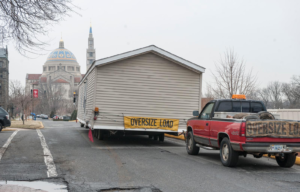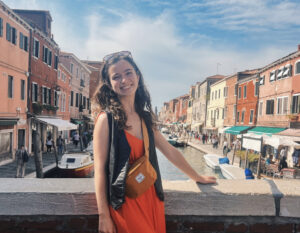President Garvey’s Catholic Project Announcement
To the University Community:
On Saturday morning the Congregation for the Doctrine of the Faith announced that it had found Theodore McCarrick guilty of sexual abuse of minors and adults, and the use of the sacrament of confession to solicit sex. The abuse of power was cited as an aggravating factor. The congregation dismissed from the clerical state the former cardinal, which prevents him from performing any priestly ministry and even from presenting himself as a priest.
This penalty is welcome news for all victims and survivors of clergy sexual abuse, and it is a step in the right direction for the entire Church. The decision is “a clear signal that abuse will not be tolerated,” Cardinal Daniel DiNardo, the president of the U.S. bishops’ conference, said in a statement Saturday. “No bishop, no matter how influential, is above the law of the Church.”
In two days Cardinal DiNardo will join the presidents of bishops’ conferences from all over the world to discuss with Pope Francis further steps to address the sexual abuse crisis in the Church. It’s unclear what progress might be made at that meeting. And even if progress is made, it won’t immediately heal the breach of trust that has arisen between Church leadership and the faithful since last summer. That said, there is plenty we can and should do here at The Catholic University of America to be part of the solution.
Since last summer, I have been looking for ways Catholic University could contribute to building constructive dialogue and discussion on these issues. Campus Ministry began with a series of three conferences for our students, which were informative and well-attended. I also participated in a student-led conversation on the crisis sponsored by the Humanitas Alliance. Our alumni have gathered around the country at panel discussion events on the abuse crisis, in which faculty members have offered expert analysis on what these latest developments mean for the future of the Church.
Beginning in November we launched a series of public conferences under the name Healing the Breach of Trust, which the Institute for Human Ecology organized. The first event took the form of a panel discussion with journalists from the New York Times, The Washington Post, Catholic News Agency, and Crux. The second conference of the series took place February 6, and featured Cardinal DiNardo and various experts on Church history and theology. The third conference will take place March 26.
Despite the success of these discussions, we want to do more than just talk. For that reason we have begun to work on an initiative called The Catholic Project. Still in the developmental phase, The Catholic Project will include research, and educational resources on the causes of the crisis, attention to the needs and perspectives of survivors, and principles and best practices for preventing future crises. It will create programs, materials, courses of study, and academic degrees dedicated to providing solutions to issues of current concern to the Church.
An initiative we hope to launch this fall is a certificate program that will take an interdisciplinary approach to child protection and safe environment training. We are also working on a series of podcasts that will serve as a resource to Catholics who might need more context for understanding the current crisis. You can go now to our website,TheCatholicProject.org, to sign up for the latest news on the project.
Catholic University is uniquely positioned to respond to the sexual abuse crisis. As the national University of the Catholic Church, we have a relationship with the leadership of the Church that is particular to our institution. All but one of our cardinal archbishops, and many of America’s bishops, are alumni.
Additionally, we have the right mix of interdisciplinary experts on all the issues related to the crisis. Our School of Canon Law is the only one in the nation. We can also draw on the many experts who teach and carry out research in the School of Theology and Religious Studies, the National Catholic School of Social Service, the Columbus School of Law, the Busch School of Business, our Department of Sociology, among others.
But before all else, as our University chaplain Father Jude DeAngelo reminded me this week, is the Gospel of Jesus Christ. The Church is not ours to fix. It belongs to Jesus Christ, who died for our sins, and invited us to follow him. Let us place all of our plans and projects–and this week’s summit in Rome–in his hands, and pray that the Holy Spirit guide our actions.
Sincerely,
John Garvey
President







